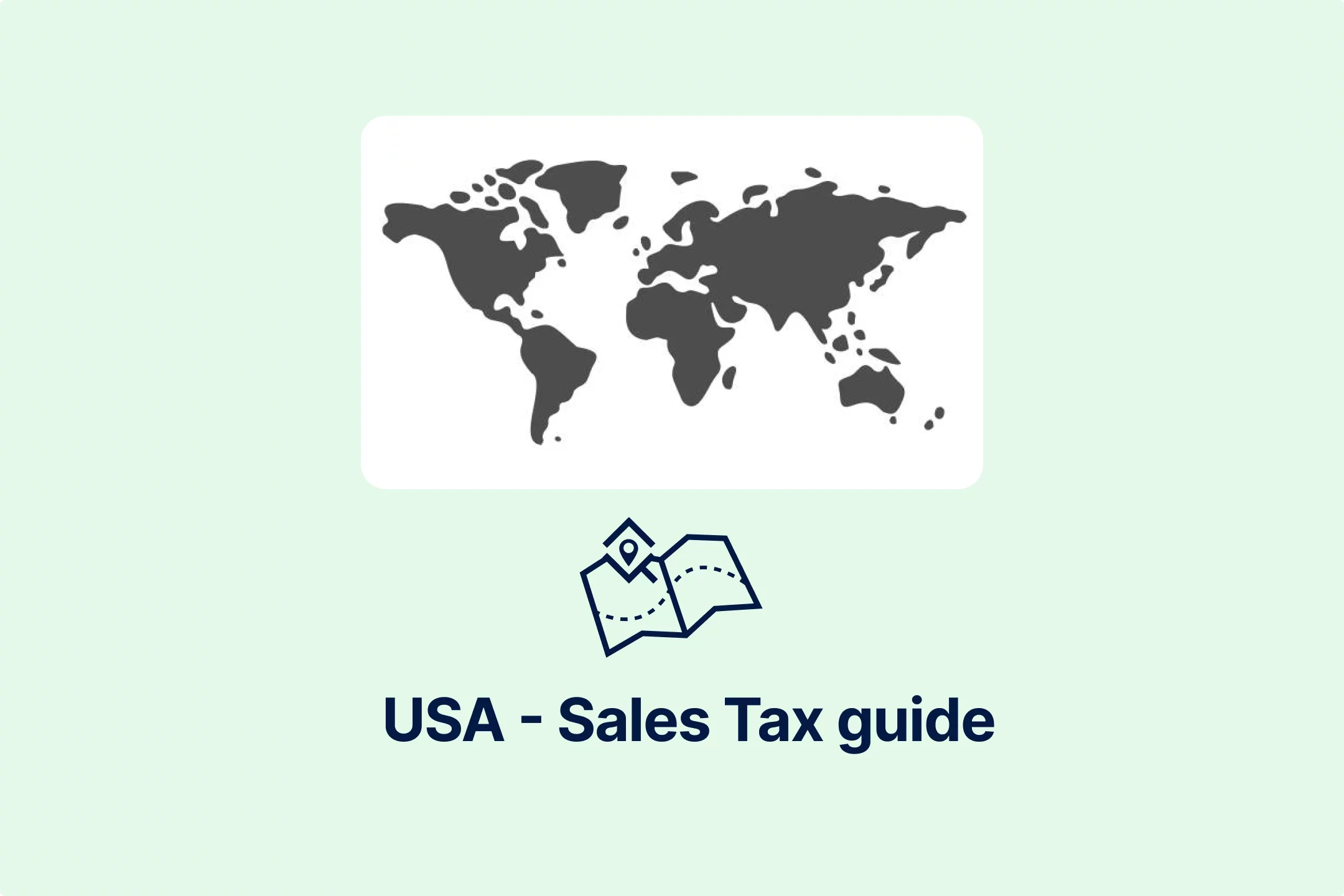US - Alaska Sales and Use Tax Guide

Sales and Use Tax Basics in Alaska
Sales Tax
The State of Alaska is one of five US states, known as the NOMAD states, that do not impose a sales tax. However, Alaska has a unique sales tax regulation. Alaska does not impose a statewide sales tax, but allows municipalities within the state to impose one. Consequently, several local municipalities introduced local sales tax rules and regulations.
Use Tax
The Alaska regulatory framework, which allows local municipalities, including cities and boroughs, to impose a sales tax, also enables them to impose a use tax on the storage, use, or consumption of goods within a municipality. Notably, the use tax must be equal to the sales tax rate and is remitted by buyers of goods and services.
Alaska Sales and Use Tax Rates
Since there is no statewide sales and use tax, there are no applicable state-level rates. However, there are several applicable local sales and use tax rates, including a 5.5% rate in Haines, City and Borough, 5% rate in Juneau, City and Borough, and City and Borough of Sitka, a 3% rate in Kenai Peninsula Borough, 2.5% in Ketchikan Gateway Borough, and a 7% rate in Wrangell, City and Borough.
The easiest way to determine applicable sales and use tax rates is through the Alaska Sales Tax Lookup portal, provided by the Alaska Remote Seller Sales Tax Commission (ARSSTC).
Tax-Exempt Transactions
Since there is no applicable state sales and use tax, there are no noticeable statewide exemptions. One of the main exemptions at the state level is when the state legislature approves a contract for a major natural gas or resource development project. In such cases, the party involved in the contract, along with all property, gas, products, and activities connected to the approved project, is exempt from certain municipal taxes, including sales and use taxes. This exception applies uniformly across all types of local governments in Alaska.
Exemptions are also provided for orbital space facilities, and alcohol can only be taxed if other goods are also taxed. Municipalities may also not impose a sales tax on construction contracts awarded by the state or on related subcontracts.
Nexus Rules in Alaska
The uniqueness of the Alaska sales and use tax landscape is also evident in the presence of economic nexus rules, even though there is no sales and use tax at the state level. In addition to economic nexus, individuals and businesses may become liable for local sales tax if they establish physical presence or meet marketplace nexus requirements.
Physical Nexus
Similar to other states, physical nexus is also referred to as doing business in Alaska, meaning that individuals and businesses own or lease physical property in the state, have inventory there, or have their salespersons regularly present in the state. Also, having an employee, independent contractor, or affiliate is sufficient to establish a physical nexus in Alaska.
Economic Nexus
Considering that they have the right to impose sales tax, in 2019, Alaska's municipalities, most notably boroughs, formed the Alaska Remote Seller Sales Tax Commission (ARSSTC) to provide a streamlined, single-level administration of sales tax collection and remittance. The ARSSTC's task is to equalize the position of physically present and remote sellers from the sales tax perspective. To achieve this, the ARSSTC adopted the Uniform Code in 2020, which sets the rules for tax collection on remote sales.
Under the Unified Code, local jurisdictions joining ARSSTC must implement the remote sellers rules within 30 days of adopting the Code. The Unified Code also set the economic nexus requirements. Initially, the economic nexus was set at USD 100,000 in gross sales, or having 200 or more separate transactions. However, on January 1, 2025, the rules changed, leaving only the amount threshold in effect and removing the transaction threshold.
Marketplace Nexus
The Unified Code also introduced the marketplace nexus rules, subjecting marketplace facilitators to local sales tax requirements if their gross sales, including their own and those facilitated, within Alaska exceed USD 100,000.
Taxable Goods and Services in Alaska
Since local municipalities are responsible for defining sales and use tax rules, there is no general rule on what is taxable. Local municipalities have the freedom to determine what is taxable and what is non-taxable. However, there is some common ground among jurisdictions. Most sales of tangible personal property, or tangible goods, are generally taxable, unless exempt in a specific local jurisdiction. Also, sales of prepared food and clothing are typically subject to tax.
Bundled Transactions and the True Object Test
In cases where a transaction includes both taxable and non-taxable items or services sold together as a bundle, the entire price may be taxed unless the seller can clearly show how much of the total price applies to the non-taxable part.
E-Commerce Framework
Any remote seller, either individual or business, that exceeds the economic nexus threshold in the previous calendar year and conducts sales in a jurisdiction that has adopted the Uniform Code must register for, charge, and collect sales tax.
Registration is completed through the ARSSTC portal, which is also used to file taxes for jurisdictions that have adopted the Code. However, for those jurisdictions that implemented sales tax but have not yet adopted the Code, taxable persons must continue to file directly with the jurisdiction using their own sales tax forms.
Regarding the economic nexus threshold, all transactions throughout the State of Alaska must be reviewed to determine whether they meet the threshold, regardless of whether they occur within a taxing community or are tax-exempt. This means that once taxable persons exceed the threshold in any jurisdiction that has adopted the Unified Code, they must register with ARSSTC.
However, if they only sell to non-ARSSTC jurisdictions, taxable persons do not have to register until they conduct sales into a member jurisdiction. Furthermore, taxable persons that exceed the economic nexus threshold but only sell non-taxable products must still report their exempted transactions.
Due to the unique application of sales and use tax and remote seller rules, a taxable person may find themselves in a situation where they have physical presence in one jurisdiction and make remote sales to another in Alaska. In those cases, the threshold is calculated solely from remote sales made outside their home jurisdiction.
Marketplace Rules
Remote sellers who make sales only through a marketplace facilitator platform do not need to register for sales tax in the ARSSTC jurisdictions. However, if a remote seller makes sales through a marketplace facilitator and through their website or online store, they calculate the economic threshold using all sales into Alaska, regardless of the destination or taxability status of the end buyer. If the economic nexus is exceeded, the remote seller is responsible for collecting and remitting sales tax on all non-marketplace sales into Alaska.
Digital Goods and Services
In 2021, the ARSSTC released an interpretation on the taxation of software downloads, specified digital products, streaming, and other online services. In the interpretation letter, the ARSSTC concluded that the software downloads, digital products, SaaS, streaming services, and other online services or subscription-based services are all treated as taxable remote sales, and the customer’s billing address decides which jurisdiction’s tax rules apply.
Digital Marketplace
Marketplace facilitators are treated the same as remote sellers for sales tax purposes. This means that once they exceed the USD 100,000 threshold in gross sales, they must register for, collect, and remit sales tax. Marketplace facilitators must include all gross sales, from all sales of goods, property, products, or services provided within Alaska.
Digital Platform Operator
Those who exceed the threshold, such as an online platform that connects buyers and sellers, are treated as the remote seller for all sales made through its platform. In other words, the marketplace facilitator becomes liable for collecting, reporting, and paying sales tax on those transactions.
However, there is an exemption to this rule. If a marketplace facilitates the sale or rental of lodging, the actual seller, not the facilitator, is considered to have a physical presence in the local tax area and is responsible for collecting and remitting sales tax.
Filing and Payment Requirements in Alaska
Sellers that have a physical presence in a member jurisdiction and make only local sales must report, pay, and follow that local jurisdiction’s tax rules, including audits. If those sellers also make remote or online sales delivered to another member jurisdiction, they must report and pay the tax on those remote sales to the ARSSTC, while continuing to report local sales directly to their local jurisdiction.
Notably, even though marketplace facilitators are treated as the remote sellers for all sales they handle and must collect, report, and remit taxes to the ARSSTC, specific facilitators must deal directly with local jurisdictions instead, such as delivery network companies delivering goods for local businesses, marketplaces handling short-term lodging rentals, and those offering travel agency services.
Filing frequency is monthly or quarterly. Additionally, a less frequent filling is optional upon approval from the ARSSTC.
Penalties for Non-Compliance with Sales and Use Tax Requirements
The ARSSTC imposes a USD 25 penalty for each month or part of a month the sales tax report is overdue, up to a maximum of USD 100. Importantly, the incomplete return is treated as if no return was filed at all. Any unpaid taxes are subject to a 15% per-year interest rate until they are fully paid. Additionally, there is a 5% penalty per month, up to a total of 20% of the unpaid tax.

Featured Insights

Burkina Faso FEC E-Invoicing Mandatory July 2026
🕝 February 24, 2026More News from United States
Get real-time updates and developments from around the world, keeping you informed and prepared.
-e9lcpxl5nq.webp)






-fd4vrjrcmo.webp)











-qoqtiao7l2.webp)





-o0xyg5unvs.webp)










-sug7vykj81.webp)
















-pofe7ucwz3.webp)









-de8hdb1bn3.webp)








-xbhr0m4jsb.webp)


-ae6fi6cjox.webp)














-b0fpsws1w1.webp)





















-x78wuofpzj.webp)
















-b44f1vjl1i.webp)

-priw8nq5xc.webp)


.png)

.png)






























